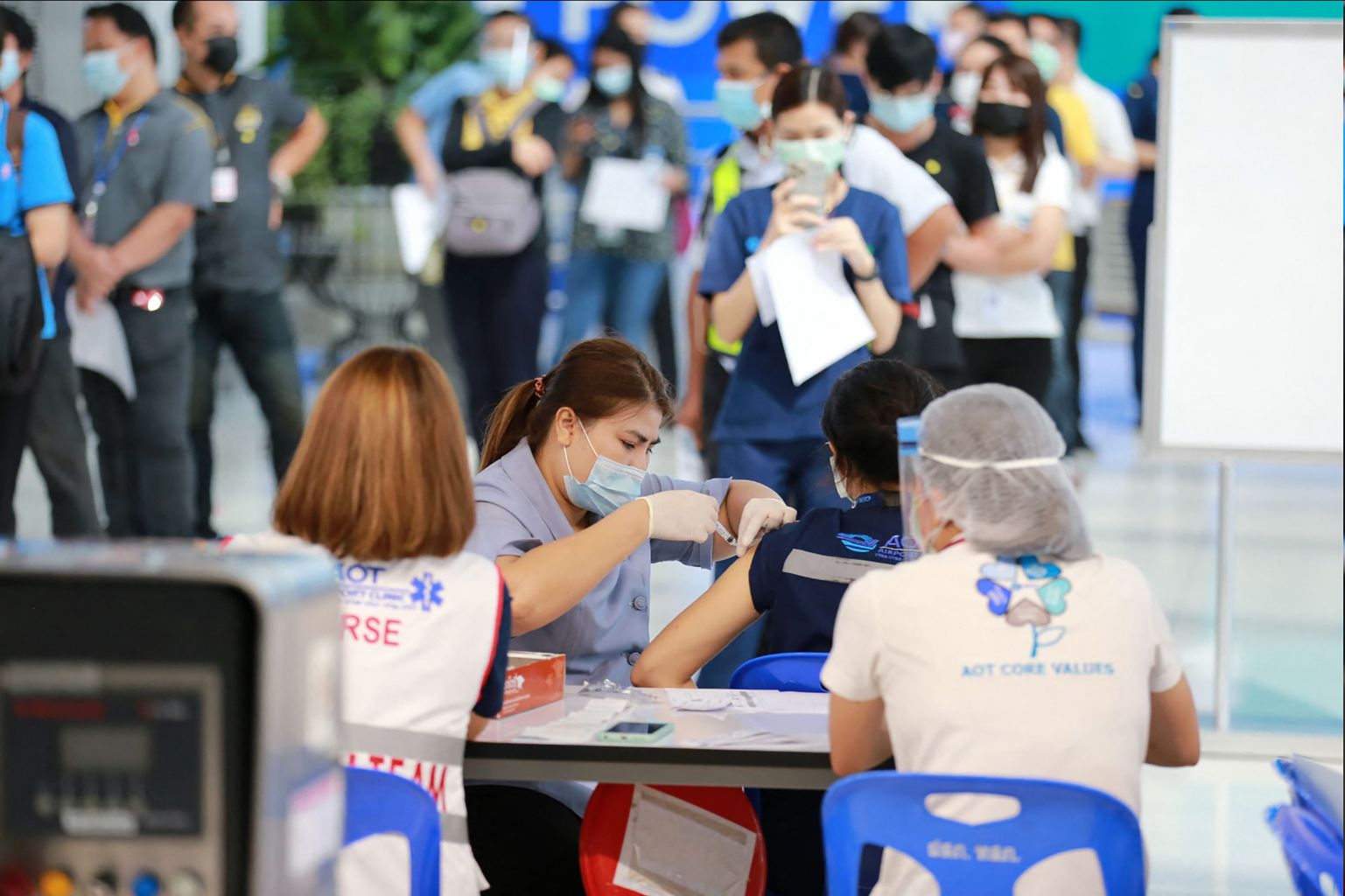Thailand rethinks Covid-19 vaccine plan as it reports another daily record of 15 deaths
Sign up now: Get insights on Asia's fast-moving developments

Thailand so far has administered only about 1.1 million doses.
PHOTO: AFP
BANGKOK (BLOOMBERG) - Thailand is reworking its vaccine strategy as a month-long soft lockdown to contain its worst wave of Covid-19 infections deepens an economic crisis and risks plans for reopening the crucial tourism industry.
On Tuesday (April 27), the country reported 15 fatalities from the virus, the most since the pandemic began, taking the death toll to 163. The country's total case count has now reached nearly 60,000.
On Wednesday, Prime Minister Prayut Chan-o-cha will meet industry groups, including the Thai Chamber of Commerce and the Tourism Council of Thailand, to discuss ways to accelerate a vaccine roll-out that so far has reached less than 1 per cent of the population.
The meeting may outline the private sector's role in securing vaccines for its employees, after that was initially ruled out in a national plan to vaccinate half the population by the end of the year.
Mr Prayut is under pressure to tighten restrictions on businesses and travel as an outbreak that began from nightlife venues in Bangkok overwhelms hospitals and healthcare facilities.
The flare-up has forced the government to set up field hospitals and convert hotels into treatment facilities, amid calls for accelerated vaccinations and a lockdown of at least the capital city.
Thailand's bet on AstraZeneca to meet the bulk of its vaccine needs, a move slammed by the opposition as a one-horse bet, is faltering, with officials now scrambling for supply from makers including Pfizer, Russia's Gamaleya Institute and Johnson & Johnson.
While neighbours such as Malaysia, the Philippines and Vietnam have not fared much better in their vaccine roll-outs, tourism-reliant Thailand's plan to reopen its borders hinges on achieving herd immunity.
"The key to exit from this crisis is vaccines," said Mr Somprawin Manprasert, chief economist at Bangkok-based Bank of Ayudhya's research unit. "Slow vaccination will delay the reopening and cause further damage to the economy."
Phuket Plan
Until four months ago, Thailand had been relatively successful at containing the outbreak. Since mid-December, however, the country has seen two waves of outbreaks, the second one worse than the first. Businesses have been demanding a faster vaccine roll-out, with the private sector funding a portion of the cost.
The tourism industry in Phuket, the nation's most famous resort island, is pushing ahead with a plan to inoculate 70 per cent of the local population by July so it can welcome back vaccinated tourists without requiring a quarantine.
Business groups have been pushing for more vaccines from the government as the crisis devastates jobs and the economy.
The need to reopen for tourism stems from mounting unemployment and the threat to a nascent recovery that is dependent on billions of dollars in revenue from foreign visitors.
Thailand's central bank has flagged a risk to its 3 per cent economic growth forecast for this year and a number of economists have already trimmed estimates, citing the economic hit from the latest outbreak.
Mr Prayut has promised to inject an additional US$12 billion (S$16 billion) to aid the economy.
But continued stimulus measures will widen the fiscal deficit, and Moody's Investors Service has said continued restrictions against the virus could constrain the recovery and are a credit negative.
For now, Mr Prayut is focused on overhauling the vaccine strategy to counter criticism that his administration was too slow to lock in supplies and contain the outbreak.
The Thai Chamber of Commerce on Monday began taking vaccine orders from members, at their own expense, as a way of speeding the recovery.
Thailand so far has administered only about 1.1 million doses, mainly to health workers and those at higher risk of infection. The government is seeking to boost vaccine procurement by 50 per cent to 100 million doses for this year.
"The government has been facing criticism from the public in recent months, but what really forced them to pick up the pace in securing more vaccines is pressure from the private sector," said Mr Punchada Sirivunnabood, a visiting fellow at Singapore's ISEAS-Yusof Ishak Institute.
"This really shows how big businesses can influence the government in Thailand."


